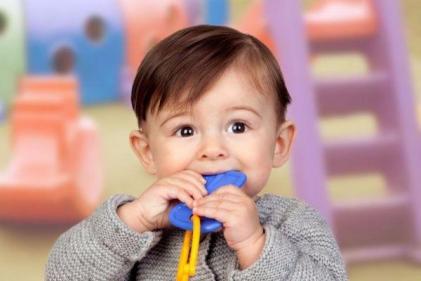Your 27 month old learns by watching and imitating you and other adults in his life. This is a good time to take advantage of the opportunities that arise to encourage a healthy lifestyle and instil good manners.
Your Child’s Development
At 27 months of age, your toddler is full of energy and seems to never sit still. It’s more than likely difficult at best to get him to be still long enough to get his hair brushed. You may think that this endless activity is all he needs for exercise, but it is? How do you know for sure? Well, it’s hard to tell with a toddler, but there are things you can do to channel his energy into fun activities that you know are providing him with the right kind of exercise.
Experts recommend that even toddlers have at least 30 minutes of structured exercise and 60 minutes of unstructured exercise each day. Structured exercise includes riding a tricycle or playing a game such as soccer. Unstructured exercise is just free play, such as playing on the playground or in the back yard. The idea is to keep them moving and away from sedentary activities like watching television.
The best way that you can encourage your toddler to develop a healthy attitude about exercise is to set a good example yourself. Get involved with your child’s play whether it’s a game of tag or marching around the yard. Seeing you being physical will teach your toddler good exercise habits.
This is also a time in a child’s life that many parents start teaching manners. It’s much more involved than simply teaching your child how to say “thank you” and “please”. You must instil the importance of considering other’s feelings.
A child learns to respect others by watching the behaviour of the adults in their lives, so remember to practice what you preach. Being a good role model is more important than any other lesson you can give to your child. Behaving the way that you want your child to behave is the beginning of the process of raising a respectful child.
At a time when you are running non-stop chasing your over-active toddler, teaching manners may seem untimely. However, you are already unconsciously teaching manners to your child every day. When you explain to your child why taking another child’s toy was wrong, he is learning empathy. When a child understands empathy, respect naturally follows. Additionally, asking your child questions about a situation in which behaviour was improper will serve the same purpose. There are several opportunities during your normal day to use this tactic. For instance, at story-time, ask your child how he thought the little pig in the story felt when the big bad wolf blew his house down. Again, this teaches empathy and children are very quick to understand empathy. Abiding by what they have learned is the part that takes more time to master.








